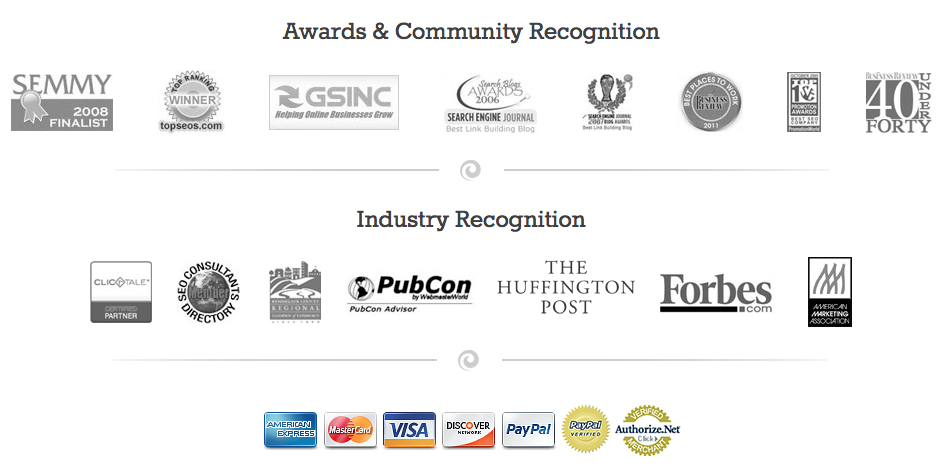Orange County SEO™ Blog
Drug Rehab Orange County
There are multiple options for inpatient drug rehab in Orange County according to therapies conducted, experts, amenities, and many other factors. Research well before deciding on the inpatient center to join; mostly according to your specific needs. In a rehab, one receives emotional and medical support to help them in dealing with withdrawal symptoms.
There are different lengths with which one can stay at the Orange County residential treatment center depending on their program. The common period is 30 days, but in most rehabs, one is required to stay even up to 90 days or more. The physician recommends the program based on other mental health conditions that one may be having, and if one has ever been in rehab before. This Orange County drug rehab, Lighthouse Treatment Center, has many affordable options for detox and drug addiction treatment.
Drug Abuse and Treatment Options at Rehab Orange County
Ideally, people consume drugs because they want to change a certain aspect of their lives. Most believe that drugs can be a solution to their problems. Eventually, the drugs become a major puzzle. Although it may be challenging to deal with your problems, effects of drug consumption can be more severe than the issue you are having.
Drugs always help you to avoid reality. The safest and wisest way to deal with your problems is to get facts about them and not to consuming drugs. Normally, drugs can be harmful, it all depends on the amount. Small quantities of drugs serve as a stimulant, making you more energetic and high, whereas if you consume large quantities, your system will slow down. Taking too many drugs can be fatal.
Although a physician can prescribe some drugs, take as per the instructions. Only the amount that is prescribed can help you get the desired impacts on your body. Some substances if taken, affect the mind directly and can alter your perception of things or slow down your reaction time. A person may be destructive, quickly irritated or sleepy.
Medicines are drugs too; they are meant to make changes in the way your body systems are operating. They are intended to make the body work better. They are not always necessary and taking excess can be fatal. They work like stimulants or sedatives. Never use medicines in un-prescribed ways.
Reasons why people abuse drugs
People use drugs due to different reasons. Drugs come in various forms too; powder, liquid, solid. Addiction can be different also, depending on the substance abused and for how long. Although everybody is at risk to getting addicted to any drug, some people are more vulnerable based on several factors such as family history, genetic endowment, physiological parameters, and social norms.
Not all people who at danger of addiction get addicted, it all depends on one’s interest and decisions. The following are some common reasons why people abuse drugs;
-
Legality – some drugs such as alcohol and nicotine are legal, but their consumption is regulated. Most people globally who suffer from drug addiction die from alcohol-related diseases. In US alcohol is the third cause of preventable deaths. People usually consume alcohol to relieve stress and anxiety.
-
Prescribed drugs- medicines should only be taken under directions of a doctor. All medications have effects on the body if abused. Some individuals contemplate that since a physician has recommended the drugs, they have no consequences. Contrary, opiates, which can be prescribed to a patient, are highly addictive and can motivate one to abuse other drugs such as heroin.
-
To fit in – this is the most known use of drugs for young adults and adolescents. They will start to use the drugs because they want to fit into a certain class. Young adults are most rebellious, and they don’t comprehend what drugs can do their health and life generally.
-
Emotional problems – being an adult calls for many responsibilities; family, work and community responsibilities. If one doesn’t know how to balance them all, they may suffer from stress or depression. People turn to drugs to calm them. Other emotional issues like tension and boredom make adults abuse drugs.
It starts from the first attempt and later one gets addicted. Some people may take drugs due to low self-esteem; drugs make them feel good about themselves. If one experiences a traumatic event in their life, they will probably consume drugs to assist them to cope up with the emotions.
Most people suffering from depression self-medicate themselves with marijuana, alcohol, and other substances. Whether depression, anxiety or stress, seek medical attention to assist you rather taking drugs, they worsen the situation.
-
Peer pressure – most young adults and teenagers use drugs after being influenced by their friends. They want to keep their friends, and thus they do anything to please them and fit into their company. If you fail to consume the substance, you are excluded. Social pressure can be extremely powerful. In parties, outs and social gatherings, some people think that it is a must to take alcohol. In some groups, it is trendy to take drugs.
-
For pleasure – people take drugs to make them feel good. Some people enjoy the pleasurable feelings associated with drugs. The pleasure of drugs can be feelings of “high,” calmness, the capability to stay awake or sleep deeply, or increased strength. To some individuals, it is not only fun to go outs but also helps in relieving stress and anxiety.
-
Availability – some licit drugs are easy to possess such as alcohol and nicotine. They are available in shops and can be a good reason why adults abuse them. Media also contribute to the factors that lead to substances abuse. They advertise and talk about them in magazines and films. Some persons may think that they are being glorified and they are good.
-
Experimentation – most people grow in families where a drug is not a topic to be discussed, though they might be having a family member or acquaintance taking drugs. When they mature, they become curious and want to want to experiment. They want to know how it feels to be intoxicated. Drugs like cocaine and alcohol, change how the mind functions and the feeling is worth trying again. Heroin, meth and other substances are highly addictive, and one will make it habit until they become addicted.
Effects of Drug Abuse; Short-term and Long-term Rehab in Orange County
Impacts of substance abuse can either be short-term or long-term. Effects of drug abuse depend on gender, age, one’s physiology, genetics and mental health condition. Some effects can be mild, though abuse of some substances can be fatal or pose the user to life-threatening diseases. Addiction can affect your life greatly. Work, family and community relations are affected.
All substances affect the body in various ways, but all alter the functioning of the central nervous system. Short-term consequences of drugs depends on the amount of substance taken, the potency of the drug and if it has been mixed with other drugs. Drugs can change your moods, perception of things, reaction time, and energy level in your body.
Some substances such as alcohol, hallucinogens, inhalants, and opiates produce specific effects.
Alcohol
There are some factors which affect how one reacts after consuming alcohol. If one drinks alcohol on an empty stomach, they will experience the effects quickly than one who has eaten. Weight also affects intoxication levels. Low amounts of alcohol make one more social whereas high amounts can cause sedation and low breathing rate. Short-term impacts of alcohol include loss of coordination and concentration, mood swings, red eyes and uncontrolled eye movements, and memory problems.
Abusing alcohol for a long time can harm your physical and mental health. As you drink, the body gets used to drinking and will require greater amounts for you to experience the results, a condition known as tolerance. Later if one quits, they suffer from severe withdrawal symptoms. If consumed moderately, alcohol can be safe. Recreational use of alcohol however, paves the way for abuse which can be detrimental to your health.
Long-term impacts of addiction to alcohol are cirrhosis, liver cancer, stroke, high blood pressure, weak immunity and many others. Once an alcohol addict stops drinking they might experience seizures.
Hallucinogens
Few hours after consuming hallucinogens you may experience hallucinations, synaesthesia, high heart rate, blurred vision, impaired judgment, and many others. Hallucinogen intoxication is known as “trip,” and when it affects you negatively, it is referred as “bad trip.”
Although there is not enough evidence of long-term impacts of hallucinogens abuse, there are two documented conditions. Persistent psychosis which is characterized by paranoia, mood swings, disorganized thoughts and Hallucinogen Persisting Perception Disorder( HPPD) where one experiences visual disturbances and strong colors. Hallucinogens use after a period can cause persistent memory loss, sleep problems, and can damage the brain.
Opiates
Opiates include heroin or pain relievers such as oxycontin. They can cause respiratory complications. Heroin can be smoked or injected into the bloodstream. Short-term impacts can be vomiting, nausea, itchy skin, slowed reaction time, loss of attention and many others.
Dependence on opiates can injure the brain because of respiratory depression. Additionally, scientists claim that heavy use of opiates for long can cause weakening of the white matter in the brain which will affect behavioral control, stress response, and ability to make decisions. Long-term effects of opiate abuse are inclusive of sexual dysfunction, irregular menstrual periods in women, and many others.
Inhalants
They are very common in our household products such as cleaning detergents, paints, and glue. Mostly people inhale the substance through nose or mouth. Others use plastic bags or balloons. Short-term effects of inhalants fade after a short while, and they can be fatal. Inhaling from a closed container can cause coma or death. Shortly after inhaling you may experience dizziness, slurred speech, muscle weakness, hallucinations, apathy, etc.
Inhaling poisonous substances for a period can be toxic to the body and cause chronic health problems. These long-term impacts might be damage of the liver, loss of coordination, tuberculosis, injury of the central nervous system, loss of ability to hear, etc. inhalants contain different chemicals and their long-term consequences vary according to the constituents.
Adult Drug Rehab Orange County
Once an individual becomes dependent on the drug, their brains no longer function normally. They need intervention and support. Drugs alter the way in which the central nervous system works, and one is unable to make sound decisions. Craving for the substance can be unmanageable, and one might not be able to live without the drug. Normally, drug addicts deny that they have a problem and it can be challenging to help them.
Sadly, they can’t even recognize what they have lost due to their drug abuse; family relations, job, properties and even dignity. No matter how the drug affects them, they will still abuse. It requires strong intervention from friends and relatives to make them realize that they need medical help.
Many addicts who sign into rehabs are helped to detoxify from the substances they have abused. Withdrawal from drugs can be painful and is a long process. One needs an expert to supervise and support them, for it to be safe and successful. Medics help in managing the withdrawal symptoms by prescribing medications and conducting therapies.
Detox process can take days, but treatment can go up to 3 months. At the rehab, one is counseled and educated on drug effects and skills that can help one after the program.
Signs of Addiction
Even though one may be able to know the cause of their drug abuse, most people are unable to determine if they are addicted. Any drug can lead to addiction. The following are some alerts for drug addiction;
-
Bad relations with family, friends, and colleagues. When one is addicted to substance use, they always have issues with maintaining their relations and in most cases cause troubles.
-
Constant cravings – an addict will not be able to function normally without consuming the substance. The urge to take the drug persists even one tries to resist.
-
Being unable to resist the urge to take the substance. If one attempts to stop consuming the substance, they usually take the drug to calm withdrawal symptoms.
-
Neglecting one’s responsibilities- to addicts, consuming the drug is their biggest priority. One can do anything to consume the substance. They abandon their responsibilities. Also, one will no longer enjoy their hobbies like swimming or watching movies.
Orange County Treatment of Drug Addiction
Treatment of drug addiction entails visiting a rehab for medical support. A rehab is personalized to the requirements of 18-390 years of age individuals. At a rehab, there are enough facilities and experts to assist one with the withdrawal symptoms. The environment is safe and effectual for aiding one in achieving sobriety.
Although many adults suffer from addiction to drugs, few seek medical treatment. In most cases, they don’t seek support or stop taking the drug until they suffer from adverse effect from the drug abuse. Many self-medicate themselves, which fails in most times, instead of getting professional treatment.
Treatment options for Drug Addiction in Adults
Treatment for addiction can take place in a different setting depending on various factors such as the substance abused, period, and personal preferences.
-
Inpatient rehab
Inpatient rehabs in Orange County have facilities that offer exceptional services than other programs. They are the most effective forms of treatment for drug addiction. A patient gets 24-hour medical attention from experts to help gain and maintain sobriety. The environment is safe and the period within which one can stay there is different depending on various factors such as personal preference and severity of the withdrawal symptoms.
Family programs are also conducted. Family members join you in the counseling session and other activities to give support and morale. Being lonely in rehab can be traumatizing. During the period is important to show one affection and concern. Through this, the doctor can determine dysfunctional relations that might cause a relapse.
How to choose an inpatient rehab in Orange County
Everybody has different needs that need to be addressed in the Orange County rehab, and thus it is wise to take time before deciding on the rehab to join. Research and ask questions to be able to settle on the perfect treatment program that will benefit you. What types of addiction does the rehab treat? Get a rehab that is experienced in dealing with your addiction.
Rehabs offer different therapies. In most rehabs, they are mostly done in groups. Know about the therapies given. Sometimes what you might require is family therapy. Get to know the aftercare given, how they help one to gain and maintain sobriety.
In a residential rehab, accommodation is different depending on the facility. Some offer the basic needs like shared rooms, cafeteria- form of getting meals and recreational facilities such as swimming pool. In some rehabs private luxury suites are available and a lot of classy facilities such as gymnastic and spa.
-
Outpatient rehab
An Outpatient facility can be a good option for individuals have mild addictions and are committed to gaining sobriety. Also, they should have extra supportive family and friends. One has the freedom to continue with his or her normal life. You can work and take care of your family as you work towards recovery. Some severe addictions such as heroin addiction, require medical support and outpatient program should not be in your mind.
In an outpatient program, counseling sessions are conducted either daily or weekly depending on your availability and doctor’s guidelines. Thus, you can comfortably go on with your regular duties as you stay at home. One checks in with the physician during the allotted time for advice and medications. Settings of inpatient rehabs are different, but the focus is usually educating, counseling and provision of support to the patient.
Types of Outpatient Rehab in Orange County
Only individuals who have a strong desire to succeed and are disciplined can achieve their desired results from an outpatient program. There are three settings of outpatient rehab according to the drug addicted to, the intensity of addiction, and stage one is on the recovery process.
In a daily setting, one receives sufficient support and care from medics. An individual is required to dedicate 5-7 days in a week at the facility. One spends some hours as they receive therapy and counseling. Afterward, one can go back home to their family or a sober living home to assist them in adjusting to life without drugs. Halfway houses or sober homes are facilities that gradually assist you to get back to your normal practices at your own pace.
Intensive Outpatient Program(IOP) is a setting where the treatment program has milestones to measure your progress. After accomplishing a milestone, the commitments to see the doctor decreases. It is the perfect option for individuals who are committed to recovery but must attend to some responsibilities. In this program, you may be required to attend various sessions for some hours weekly.
In an outpatient rehab, you can choose continuing care where there are groups like Alcoholics Anonymous or Narcotics Anonymous. People support each other to maintain sobriety. A licensed therapist manages them, and patients meet every week. Some continued care groups are formed based on gender, age or need.
An outpatient rehab has multiple benefits. To people who think that rehab is expensive, an outpatient rehab can suit you. It is affordable since you will stay at home while you recover. Also, you will continue working and making more dollars. Additionally, you don’t incur costs of accommodation and food.
Talk of flexibility! In an outpatient program is just a visit to the clinic. It is right for those can’t survive without working or being far from their loved ones. Detoxification is painful and needs one to experience love and support.
Conclusion
It is very normal for persons to attempt drugs at some stage in life. To many people, it is just experimentation and they have no have intentions of abusing. However, a journey of a thousand miles starts with just one step. Decisions that destroy our lives are made one day at a time. No one chooses to be an addict, and neither do they notice when they get there.
Despite your reason for drug abuse, it is harmful and can lead to death. Sign into rehab and get professional support. Self-medication can help at times, but the withdrawal symptoms of some substances can harm your health or kill you. There are many options provided in a rehab. You can decide depending on the substance abused, the period of addiction and doctor’s advice.
Drug Detox Orange County
Drug Detoxification Process
Drug addiction is a menace that has ruined many lives due to the psychological and physical changes on the human body caused by the addictive substances. Some drug addicts lack to understand the inevitability of change and thus lose their lives under the drug addiction consequences. However, those who find the error in their ways begin their journey to recovery with the drug detoxification process.
This is not the actual treatment since it hardly solves the social, cognitive, emotional, and psychological problems associated with drug addiction. Therefore, more intervention is essential after completion of the process.
Since drug addiction appears to be a multilayered psychosocial phenomenon, do not be surprised by the complexity of the detoxification process. This is the reason why addicts have a rough time quitting the addictive substances on their own, while others bail out in the middle of the process despite professional intervention.
Drug detoxification process involves a series of interventions that work towards the removal of the addictive substance toxins from your body, while managing the withdrawal symptoms. Therefore, physiological healing is the ultimate goal of the multiple detox programs. However, it is important to understand that professionals must monitor this process since your body experiences shock after lacking the addictive substances. This shock is painful and could be dangerous if extreme.
The risks associated with quitting without advice or supervision include needless uncomfortable withdrawal, relapse risk increase, overdose risks from relapse and death.
Importance Of Drug Detoxification
As mentioned above, continued consumption of alcohol or other drugs makes your body physically dependent on the elements. Therefore, abruptly quitting could lead to life threatening situations. Hence the detoxification program assists in easing the discomfort of the withdrawal symptoms.
Additionally, it helps in managing the serious medical issues that may arise due to quitting and offers a smooth path towards change after discontinuation of drug consumption. Therefore, a successful detox period lowers the risks of drug use continuation or the relapse temptation.
Drugs Requiring Detoxification
Various drugs have different withdrawal symptoms, and thus require strict supervision during detoxification. They include barbiturates, alcohol and benzodiazepines like xanax, valium and Ativan. Others that could cause relapse include opiates like heroin, and stimulants like methamphetamine, cocaine, Ritalin and Adderall.
Detox Process
The Lighthouse Treatment Center detox in Orange County recommends the use of three essential steps to fully detoxify the human body. They are namely; evaluation, stabilization and treatment transition. By the end of these steps, you should be ready to transition into a recovery plan.
-
Evaluation
For the medical professionals to offer an effective treatment plan, they must first conduct a diagnosis to assess your addiction. This phase not only identifies the addiction and level of use but also determines the complications, psychological conditions or medical issues taking place in your body, alongside the drug abuse.
The activities involved in the evaluation stage are such as blood tests, your social situation assessment, screening for co-occurring physical and mental conditions, your psychological and medical comprehensive assessment and withdrawal severity risk assessment and need for supervision.
-
Stabilization
The stabilization phase marks the beginning of withdrawal from drugs. It involves psychosocial and medical processes that help you through withdrawal and acute intoxication, with the goal of attaining a drug-free state.
The procedure followed in the stabilization phase involves, medication to lessen withdrawal symptoms, consumption of a proper diet and nutrition, getting familiarized with expectations regarding treatment and recovery and inclusion of family and friends where appropriate.
Withdrawal Symptoms
Various factors influence the intensity of withdrawal symptoms, which also vary depending on the classes of drugs. They include:
-
Length of addiction- the daily usage of drugs for a lengthy period leads to severe withdrawal symptoms as well as high tolerance levels.
-
Existence of co-occurring mental and physical disorders- if you are suffering from a physical condition like chronic pain or mental health disorder like anxiety and depression, the symptoms may amplify as a result of withdrawal, causing distress.
-
Mixture of drugs abused- combining drugs with alcohol creates a unique set of symptoms that could exacerbate each other.
The common withdrawal symptoms among the majority of the drugs are sleep and mood disturbances, physical issues and cravings. During mood disturbances, you may experience irritability, mood swings and agitation. During sleep disturbances, you are unable to sleep even when fatigued.
The physical issues that you may experience include tremors, chills, flu-like symptoms like vomiting, headache, nausea and running nose and sweating. Due to cravings, you may feel the need to access the drug of choice just to escape the withdrawal symptoms.
Withdrawal Symptoms According To Different Drugs
Benzodiazepines and alcohol share similar symptoms since they have similar action mechanisms. They include, hallucinations, anxiety, tremors, agitation and seizures.
Opioids, which include painkillers and heroin cause gastrointestinal distress, bone and joint pain, muscles aches and increased sensitivity to pain.
Stimulants, which include methamphetamines and cocaine, cause withdrawal that seems to cause mental health complications like suicidal behaviors and thoughts, as well as depression.
Unfortunately, the majority of marijuana users do not believe that it is addictive. The truth of the matter is that it is very addictive and further causes withdrawal symptoms like depression, aggression, anxiety and physical symptoms like stomach pain, sweating, fever and sweating.
Synthetic cathinones, often referred to as bath salts also produce unpleasant symptoms as you go through the detoxification process. They are namely; depression, paranoia, sleep disturbances and tremors. Ketamine as well seems to cause anxiety and depression.
After attaining a balanced state whereby thoughts are stable, you begin to acknowledge and recognize the addiction. This part opens the pathway to recovery treatment, which requires the user’s role.
-
Treatment Transition
In this treatment transition stage, you receive preparation to indulge in substance abuse treatment. According to several reports, the majority of addicts refuse to seek further treatment. Regardless of the factors that may cause this decision, it is essential to push through with the treatment for full recovery.
Types Of Drug Detox
Drug detox is of many types. It all depends on the spectrum of withdrawal symptoms that you experience. The majority of these withdrawal symptoms are not physical, but psychological. In cases where you have severe to extreme symptoms, professionals may opt to use rapid detox.
In rapid detox, the professionals place you under anesthesia, causing you to sleep throughout the process and thus feel no pain. Despite that this method speeds up the detox process, it could cause death.
Other types of detox include:
Outpatient Detox
Outpatient detox takes place in outpatient detox clinics. Basically, you follow an outpatient program whereby you go to the facility daily to acquire medication. It could also include monthly visits to obtain the doctor’s prescription.
This approach is best for persons with less severe addiction cases. It also favors persons with money challenges since it is by far less expensive and allows you to stay committed to your home and work. It is advisable to enroll into a program regarding outpatient addiction treatment while undergoing outpatient detox. It goes a long way in addressing issues like cravings and gives you the opportunity to have additional support.
Advantages Of Outpatient Detox
As mentioned earlier, outpatient detox hardly cost much, and therefore, is pocket friendly. Additionally, it is flexible with your schedule.
Disadvantages Of Outpatient Detox
When out there with less supervision, you are at a higher risk of relapsing. You are also exposed to the same environmental factor that caused your addiction, and thus you are exposed to triggers and worse, access to the drug of choice.
Additionally, this approach faces difficulties in safely managing you during the acute substance detox period. If the symptoms are too much to bare, you may end up discontinuing the process.
Inpatient Detox
Inpatient detox, also known as residential detox, is the most recommended by health professionals. You can access inpatient detox in areas like hospitals, medical detox centers, and dual-diagnosis and residential rehab treatment facilities.
Advantages Of Inpatient Detox
Studies by multiple scholars indicate that inpatient is the most effective method of treatment for you. It gives you access to the staff’s quality care and support, which is available on a 24 hour basis, every day. Under inpatient, the medical professionals are able to closely monitor you and offer treatment in case medical conditions arise, or if emergencies arise.
Additionally, while admitted in these facilities, you are far away from the environment that caused your addiction. Therefore, this approach reduces the possibility of triggers and relapse. After the detox program, you may also have the privilege to receive continued care.
Disadvantages Of Inpatient Detox
Despite all the above advantages, inpatient detox is very expensive due to the special care that you have access to. It also requires you to leave your home and work responsibilities to live in the treatment facility and thus is not flexible with your schedule.
Other Types Of Detox
Opioid Detox
The Food and Drug Administration recommends and approves the use of opioid detox in the treatment of opioid addiction. It is different from the above detox options as it involves new medications that work best with different approaches to opioid detox treatment. Opioid detox specifically requires inpatient care, due to opium discomfort and for safety purposes.
Medications Used
Professionals use various medications to get you to a balanced state, where you no longer depend on drugs. They are known to assist in mitigating cravings, as they address changes taking place in the brain. Some mimic the addictive drug actions inside the brain , thus save you the agony of the withdrawal symptoms.
Some medications are in the form of holistic programs, which combine non-traditional therapies. They include biofeedback, yoga and meditation, exercise, acupuncture, healthy nutrition and creative arts therapies.
The rest of the consumed drugs highly depend on the addiction. They are as follows;
Alcohol
In the treatment of alcohol addiction, medical professionals use a variety of drugs. Among them are Lorzapam (Ativan), Benzodiazepines: Diazepam (Valium), Chlordiazepoxide (Librium) and Barbiturates.
After the alcohol detox period is complete, you may begin to attend addiction treatment as you stabilize. During this period, professionals may prescribe disulfiram, a drug concerned about relapse. It causes some negative effects if you drink alcohol while under this medication.
These effects include hyperventilation, sweating, vertigo, nausea, palpitations and blurred vision. As a result of these unwanted side effects, the drug is advantageous since it discourages drinking and help patients control themselves while around alcohol.
However, disulfiram is disadvantageous since it hardly decreases alcohol cravings or normalize brain function. It is unsafe for liver damage patients and could be useless if you are unmotivated to quit drinking. Additionally, it has side effects like delirium, liver damage, psychosis and peripheral nerve damage.
















